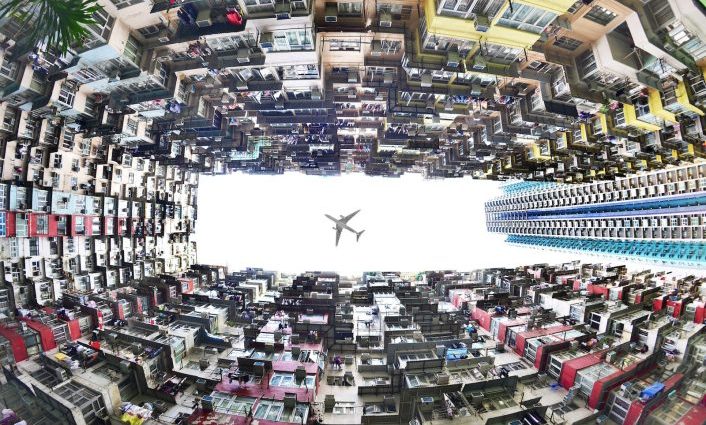Argentina is poised to downgrade China ties and upgrade US relations in a geopolitical switch driven by the ballot box. But new Argentinian President Javier Milei’s stated plan to dollarize his China-dependent economy is likely a non-starter.
Milei, 53, a right-wing politician often referred to as Argentina’s version of former US president Donald Trump, beat Economy Minister Sergio Massa 55.7% to 44.3% in the nation’s presidential election on Sunday. Milei will take office on December 10.
Milei has long advocated abolishing the Argentine peso and using the US dollar instead, claiming the currency switch will arrest his nation’s sky-high inflation.
He has also openly criticized China, saying publicly he won’t deal with “communists”, and that he favors stronger US ties. Dropping the diplomatic gauntlet, Milei and his colleagues have said Argentina will stop state-to-state trade deals and secret negotiations with China, currently its key trade partner, creditor and investor.
“We will stop interacting with the governments of Brazil and China,” Diana Mondino, Milei’s likely foreign minister, told Russia’s RIA Novosti news agency in an interview when asked whether Argentina would encourage exports and imports with Brazil and China.
Mondino told the media earlier this month that the Argentina government had in the past two decades conducted many “secret” negotiations with foreign countries, not least a US$18.4 billion currency swap arrangement with China. She said these secret contracts are abnormal and that the Milei-led government would cease the practice.
“Today we have a government that makes decisions on behalf of companies, that decides who can buy, at what price they can buy or sell,” she said regarding the administration chaired by Alberto Fernandez.
She said the practice has to stop as “the private sector has to be free to make its decisions.”
Milei’s antagonistic pronouncements have raised antennae in Beijing.
“Some in the world misread President-elect Milei’s foreign policy,” Mao Ning, a spokesperson of China’s Foreign Ministry, said in a regular media briefing on Tuesday. “No countries could step out of diplomatic relations and still be able to engage in economic and trade cooperation.”
Mao said it would be a huge policy mistake for Argentina to cut ties with major countries like China or Brazil.
Debt crisis
Argentina is already teetering on the economic and financial brink with annualized inflation of 142.7% last month, according to the country’s statistics office. Argentina’s peso currency has depreciated by 53.9% to 356 pesos per dollar over the past year.
Meanwhile, the government’s budget deficit was equivalent to 2.4% of the country’s gross domestic product last year. At the end of June 2023, Argentina’s external debt reached US$276.2 billion, accounting for 44.9% of nominal GDP in 2022.
The South American nation also still owes the International Monetary Fund (IMF) about $46 billion from previous bailouts.
This explains why Milei often posed for pictures with a chainsaw on the campaign trail, a theatrical posture of his intent, if elected, to make heavy cuts in government spending.
Argentina also had a current account deficit of $6 billion, or 5% of GDP, in 2022, meaning that it spent more than it earned in external trade.
Last year, Argentina had a trade deficit of $1.74 billion, $9.57 billion and $9.93 billion with Brazil, China and the US, respectively. With the peso’s steep depreciation, Argentinians increasingly prefer to hold foreign currencies, mainly the dollar.
Insufficient dollars
Chinese commentators said it will be difficult for Milei to resolve his country’s debt problems through dollarization and cutting government spending, both of which they claim will lead to a deeper economic downturn.
“Can Argentina use the dollar as its currency? It’s possible. But the question is: does it have enough dollars?” a Zhejiang-based columnist says in an article published on Wednesday. “In the end, Argentina will still have to accumulate dollars through external trade.”
He opined that Milei’s dollarization idea was likely just a campaign slogan and won’t be realized.
He said some are worried that China could have accumulated a large amount of Argentinian pesos that may become useless in the future. However, he said many people misunderstood the currency swap arrangement between China and Argentina as a currency exchange deal.
In mid-2020, Argentina and China signed a 130 billion yuan ($18.2 billion) swap line, which allows firms to borrow currency from the other side. This year, an additional 70 billion yuan-peso swap line was granted to Argentina by China.
Under the arrangement, Argentinian importers borrow yuan-denominated loans to pay for imported Chinese goods and pay back the loans plus interest in yuan.
In layman’s terms, China effectively issued a credit card to Argentina to buy more Chinese goods while the Argentina government prints money to buy foreign currency and pay off the debt.
Last year, bilateral trade grew 29% to $25.4 billion from $19.7 billion the previous year.
Argentina imported $17.5 billion of mechanical and electronic products, textiles and natural resources from China while exporting $7.93 billion worth of goods including soybeans, fruits, meat and cereals to China.
On October 23, Chinese President Xi Jinping told Argentine President Alberto Fernandez in Beijing that China would like to import more high-quality Argentine products and encourage more Chinese enterprises to invest in Argentina.
Read: PBoC eases RMB, triggering a debate in the process
Follow Jeff Pao on Twitter at @jeffpao3

